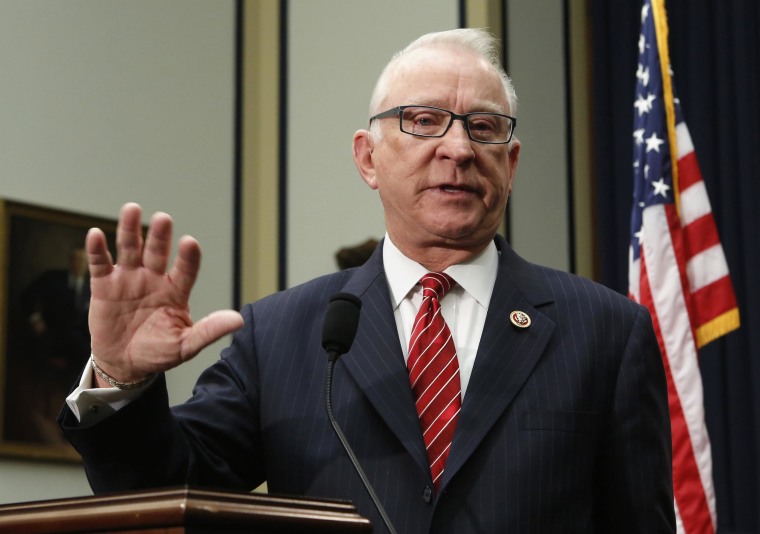Editor's Note: Rep. Howard P. "Buck" McKeon, R-Calif., is the Chairman of the House Armed Services Committee. The opinions expressed in this piece are those of the author.
The Islamic State of Iraq and the Levant is a terrifying mutation of the same threat we were facing on September 10th, 2001. President Obama is both right and within his rights to take the fight to them before an attack on the homeland is imminent.
The President is taking many of the correct steps needed to combat this enemy. He is forming a coalition of European NATO states and Middle Eastern allies. He has reportedly accepted the need to strike targets inside of Syria. He is providing logistical support to friendly forces in Kurdistan, moderate rebel groups in Syria, and the Government of Iraq. He has also proposed deploying forces to the region to help advise, equip, and bolster our allies.
These steps are vital. But they are also insufficient. When committing U.S. troops to war, two questions must be asked. The first is whether or not the threat justifies risking our most precious resource, America’s sons and daughters. President Obama has concluded, justly, that ISIL meets this condition.
The second hinges on the first. If the threat is severe enough to put Americans into harm’s way, do we have the willpower to see the fight through to its end?
Dwight Eisenhower once snapped at a staffer who was skeptical of the D-Day invasion plan. “This operation is being planned as a success,” Ike said. “We cannot afford to fail.”
Just so with this new fight against ISIL. It must be planned as a success. Politics must not be a limiting factor in our path to victory. We all want the quickest road out, but sometimes that means taking the toughest road in.
I am just coming off a weeklong trip through that region. Our allies there are willing to commit significant ground forces to eliminate ISIL. They are willing to take the risk and shoulder a heavy part of the load. This is a unique opportunity that America simply must seize and seize quickly. Our allies are ready. But they are waiting for our signal.
They will not be able to take on this enemy alone. We cannot escape the need for a robust U.S. military force to provide the enabling capabilities and unique resources that only America can provide.
For example, we will need Special Forces to engage moderate Sunnis in Iraq. We need to convince them that they are not the enemy. They hold the keys to rejecting ISIL from their midst, if they can also believe they have our support and a political future.
We will need to reestablish intelligence links and to sort out members of ISIL who are complicit in ISIL’s brutality from the population in which they will try to hide.
We will also need American pilots dropping supplies on allies and bombs on our enemies. We will need communication teams linking various allied factions together. We will need counter-terrorism forces conducting raids when and where they can.
We also must have a surge of diplomats and soldiers into the region to sort out the chaos of looming operations. Diplomats must hold together a difficult alliance. Soldiers must liaise with friendly forces and help direct them towards the same goal.
It is worth reiterating that this does not mean a large-scale invasion force, akin to what we saw in the 2003 invasion or 2006 surge. We can build a coalition, empowered by the United States, to lead on the ground. But it does mean enough forces to get the job done quickly and correctly. Half measures such as undercutting military commanders due to political considerations, or denying requests for increased force levels or equipment in response to changing conditions, are the quickest path to quagmire and defeat.
But there must be no sugarcoating the risks. In the skies, in the seas, or on the foreign shores, Americans will be in danger, and Americans will be exchanging fire with the enemy.
Most importantly, we need to accomplish these actions quickly. It is decisive action that will bring them home swiftly and safely. But I am not sure the President is willing to take this step.
My hope is that President Obama recognizes this inconvenient, and undesirable, reality. Foreign policy, and to an extent, including how we address the ISIL threat; must now be the central focus of his entire Presidency.
I will do my part and urge unity in my party should the President do what must be done to eliminate this terrible threat.
President Obama is now in the bridge-building business. He must unite our allies, and he must unite the American people.
History has a way of handing us tough decks. I believe America can meet this challenge and pray that the President will lead us there. Because this time, we cannot afford to fail.
